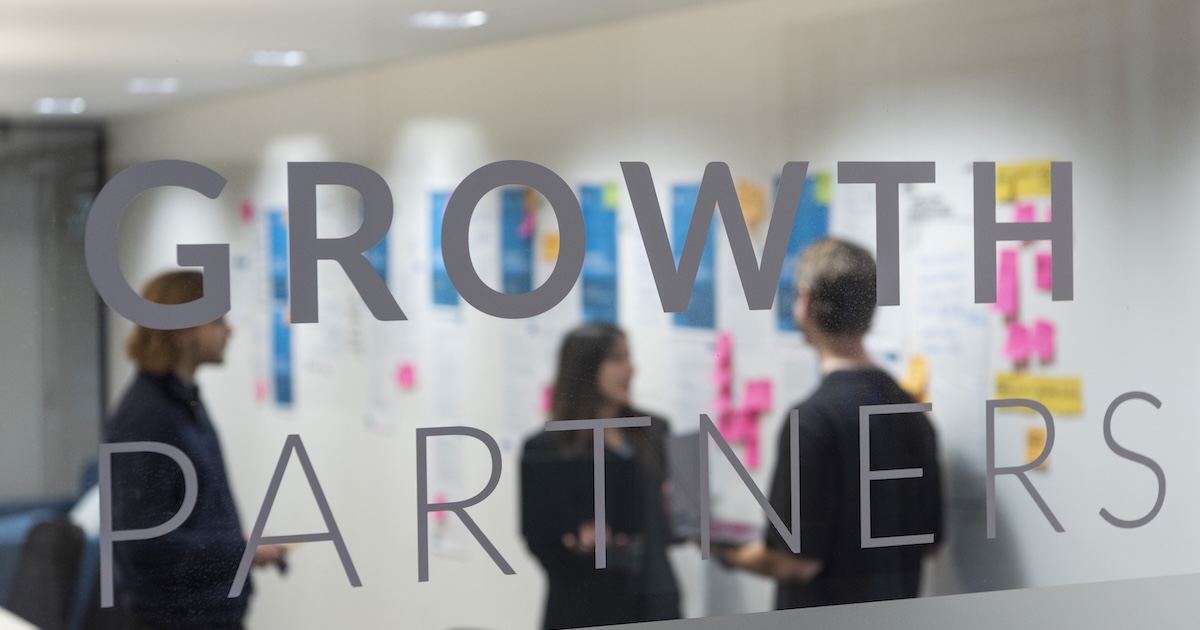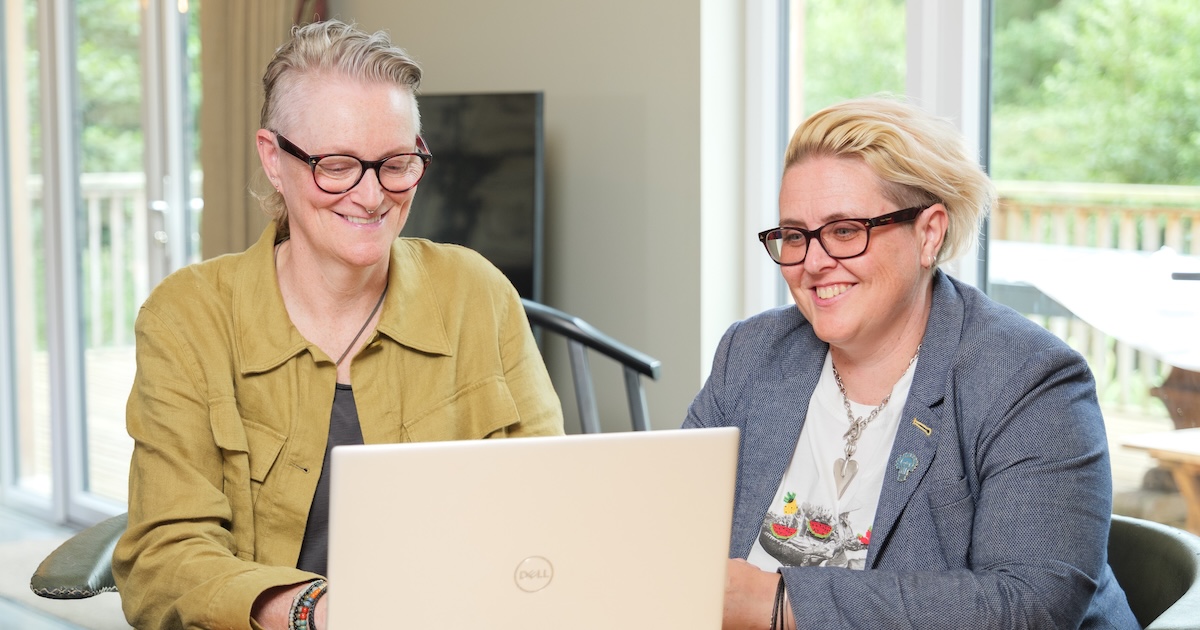Seeking support to reach your next business milestone? Plexal can help with Growth Partnership – a shoulder-to-shoulder service offering for startups, scaleups and SMEs that delivers tailored one-to-one support for scaling.
Hello, it’s Andrew, Plexal CEO, here with the latest edition of our six-part Growing your business series, which this week focuses on building a team and company culture.
To date we’ve covered:
In the early days of founding a company, when you may even be pre-product launch, there’s a real need to be introspective and understand your specific gaps. At this point, leaders should consider what their immediate needs are to adequately begin building a team, rather than following a traditional organogram or what peers do.
First and foremost, it’s important to focus on hiring humans and not CVs to ensure the right blend of people, skills and experience. While prospective recruits from Oxbridge or blue chips will come with certain credentials, where will their broader personalities and profiles fit with the mission you’re working towards?
Are your potential hires suitable for the company’s stage of maturity?
Do you just want to fill a job in the short-term, or have you also assessed a candidate’s motivation, willingness to collaborate and where they’ll fit into the wider collective so that early relationships can form?
Selecting people requires thinking how they’re going to pair with those around you as much as individual skills contributing to the future of the company. This is what I mean by focusing on humans rather than CVs and how you go about building a team that’s mission-focused.
Quantifying this, I’d consider myself as a mild introvert. Therefore, it stands to reason I’d look for someone more extroverted as my first hire. And while I have strong commercial experience, I’d look for someone more operational in turn, and so on, to ensure a balanced mixture of talent.
Of course, once you get into significant recruitment numbers in their hundreds, this becomes a fine art. Many founders will continue interviewing everyone until they reach employee 500, 1,000 and beyond.
While there may be specific roles where I join the recruitment process, Plexal’s at a stage where I’m happy to allocate time to meet new starters in their first week. This method provides hiring managers with empowerment and trust to select the correct people, which is a component of creating company culture with freedom without risk of me being too controlling.
Diversity and inclusion when building a team is extremely important and not because studies have shown diverse teams get better results. Leaders have an ethical duty to be mindful of fair and equal opportunities, remaining conscious of their organisational diversity.
For example, I see Plexal has a male-dominated C-suite and understand there’s room for change. However, I’m proud women account for 53% of overall staff and we provide space for our teams to grow irrespective of their gender or background – but around the space of the opportunities available to us. So, it’s concerning so many large firms have begun to turn the other way.
Another thing I’m cognisant of is that Plexal is a niche organisation, building a new category of business, so we’re trying to break the mould with our talent makeup, which is why we have an eclectic mix of civil servants, entrepreneurs, technologists and management consultants. Admittedly, this made for an awkward black hole of common ground initially, but it created a robust culture of being able to learn from others, rather than an army of people with cookie cutter experiences. And this is also a proposition of what we provide customers – understanding what success looks like to them.
To this point, while recruitment is in the hands of a company’s management, the contribution of customers shouldn’t be overlooked. In the same way you should recognise what a customer is trying to achieve and how you can meet their needs, this can determine who the team around you should comprise too.
We’ve been in various positions where customers have requested Plexal secondment for their team members, which is a huge vote of confidence they believe in our mission. It’s a privilege to offer a look behind the curtain and the more intimate you can be with your customer, the better.
In some cases, this has even led to permanent hires – such as James Gayner, our former Director of Defence. We met James through a customer, IBM, during the end of his military career and he shadowed me for a week. A few months later I was able to offer him a permanent role.
I’m not abashed to say James is no longer with Plexal. Part of growing a company with ambitious individuals is recognising there’ll come a time when they want to move onto the next role and I’m pleased he’s thriving in his next post.
As leaders, we must understand there’s more to life than work. We’re no longer in a society where people will occupy a role for the entirety of their career – especially within the tech and innovation space. So perspective is everything.
I’ve had six jobs in my career, meaning there have been times I’ve concluded it’s time to move on. No matter how much I’d like to retain everyone, empathy and integrity are required.
Unfortunately, I’ve worked in some aggressive, male-dominated organisations in the past, which have been heavy on politics, where shouting was normal and people got stuck chasing rewards, so this wasn’t going to be the Plexal culture.
Our culture is designed to be fun, stretching, rewarding and energetic – somewhere you want people to show up because they find it purposeful. This is hard to design and difficult to maintain but you know when you’ve got it. Employee satisfaction surveys are a valuable method to give teams a voice but it’s crucial leaders take note and listen, even if time is needed to reflect independently before reacting.
I’ve long been aware that the reality is Plexal’s culture can no longer be created by me at our size of 100 people – and nor should it. Leaders can spearhead the culture they want, pulling levers as appropriate, but getting beyond that 20-person mark and we should also welcome positive change.
Staff input and enthusiasm is essential for company culture to thrive and evolve – just as the team itself should.
I’ve summarised my thoughts on building a team and creating company culture below, so if you’re ever in a hurry, you can refer to these at speed. Please let me know what you think and share your experiences with me.
- Hire the people who you can work with, will get it and will lean in – allow yourself to look beyond CVs to focus on the humans
- Build a culture that is fun, stretching, rewarding and energetic
- Enable the team to dream big, see the future potential, create a career moment for themselves
- Hiring ambitious people means being prepared to lose them when they need to make their next career step
- Listen to the customer to shape the team, both in terms of the profile of the person you hire, and the impact they are having
- Encourage friendships to emerge and people will solve problems for each other
- Spot the moments to lead and to make difficult decisions, and proceed with integrity and good faith
I’ll continue bringing you regular updates on the Plexal growth journey over the coming weeks, so stay tuned for more insights and, hopefully, inspiration.
And if you want support to your next growth milestone – we’re just an email away and ready to work with you: https://www.plexal.com/growth/


